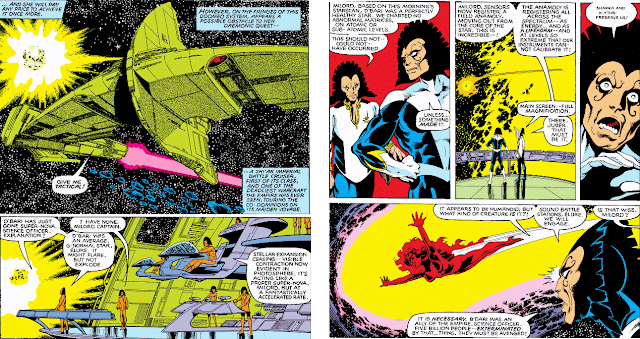As much as Rick Jones and Betty Ross, two characters who were sympathetic to the tragic circumstances of the incredible Hulk (albeit for very different reasons), Jim Wilson earned his place as one of the book's most memorable classic characters, and a stalwart who contributed to the book's recurring cast. Jim began his friendship with the Hulk in the fall of 1970, in what turned out to be an association with the character that lasted nearly 300 issues--with his loyalty to his big green buddy soon extending to a friendship with Bruce Banner, as well. Unlike Rick, Jim didn't stick with the Hulk out of a sense of obligation, but a sense of trust which the two struck up at their first meeting in a Los Angeles tenement. Both on the run... both looked at as being different... and both with seemingly no prospect for a better future, they were two sides of the same coin. Nor did it take long for Jim to earn the respect and admiration of Gen. "Thunderbolt" Ross, for his bravery as well as his strength of character. Virtually everyone who came into contact with Jim seemed like they were pulling for him--a feeling that likely extended to readers, as well.
 In 1994, rather than letting the character fade into obscurity, writer Peter David decided to make Jim the focus of an issue dealing with the subject of AIDS. We don't know how Jim contracted the HIV virus; we first learned that he had developed full-blown AIDS nearly three years earlier, but Banner (who now shared his intellect with the Hulk) dismissed the cause as unimportant after saving Jim's life from an assassin who had targeted the partner of another AIDS patient: "Who cares? If he had measles, it wouldn't matter where he got it. He's a friend who needed help." It was probably the appropriate way for David to settle the matter in that particular issue--though it would make for a curious line of dialog in this later issue from David that obviously seeks to raise AIDS awareness, where an effort is made to list the various ways in which the virus can be transmitted. That seems sufficient to fulfill the responsibility inherent in the story; as for Jim, it's his passing, as well as the exit of a long-standing character of the book, which seems meant to resonate more with the reader.
In 1994, rather than letting the character fade into obscurity, writer Peter David decided to make Jim the focus of an issue dealing with the subject of AIDS. We don't know how Jim contracted the HIV virus; we first learned that he had developed full-blown AIDS nearly three years earlier, but Banner (who now shared his intellect with the Hulk) dismissed the cause as unimportant after saving Jim's life from an assassin who had targeted the partner of another AIDS patient: "Who cares? If he had measles, it wouldn't matter where he got it. He's a friend who needed help." It was probably the appropriate way for David to settle the matter in that particular issue--though it would make for a curious line of dialog in this later issue from David that obviously seeks to raise AIDS awareness, where an effort is made to list the various ways in which the virus can be transmitted. That seems sufficient to fulfill the responsibility inherent in the story; as for Jim, it's his passing, as well as the exit of a long-standing character of the book, which seems meant to resonate more with the reader.Whether David pulls off that aspect of the story is debatable; but to my own surprise, I found that the more riveting part of this tale was the interspersed segment where Betty Ross-Banner, who works a Help Line in Reno, struggles to keep a caller who's developed AIDS from committing suicide. The depth of the call takes Betty a little by surprise, and well out of her comfort zone--and it becomes an examination of her strength of character as well as her ability to adjust to the situation and stick with the call for as long as it takes to help the caller; whereas David doesn't devote all that much to Jim's scenes aside from a disconcerting propensity to have the character grasp at straws for treatment options and throw guilt in the direction of Banner/the Hulk at any sign of reticence. It's not exactly having Jim go out on a high note; yet the moment he does pass still sends a ripple through the book, and through the years.
As for how Jim winds up in "the Mount," the headquarters of Banner's benefactors and partners, the Pantheon, we know from a prior story that Jim runs an AIDS clinic in L.A. for those whose families have cut ties with them and who need a haven where they can spend their last days. By extension, he's also active in demonstrations concerning AIDS-related issues, and becomes involved in a rally that centers on Joey Harris, an AIDS-infected student being forced to leave his school due to the concerns raised by other parents. While both sides meet with school officials, violence breaks out between the protesters and those who are in favor of Joey being kept out of the school--and Jim becomes caught in the crossfire.


















































